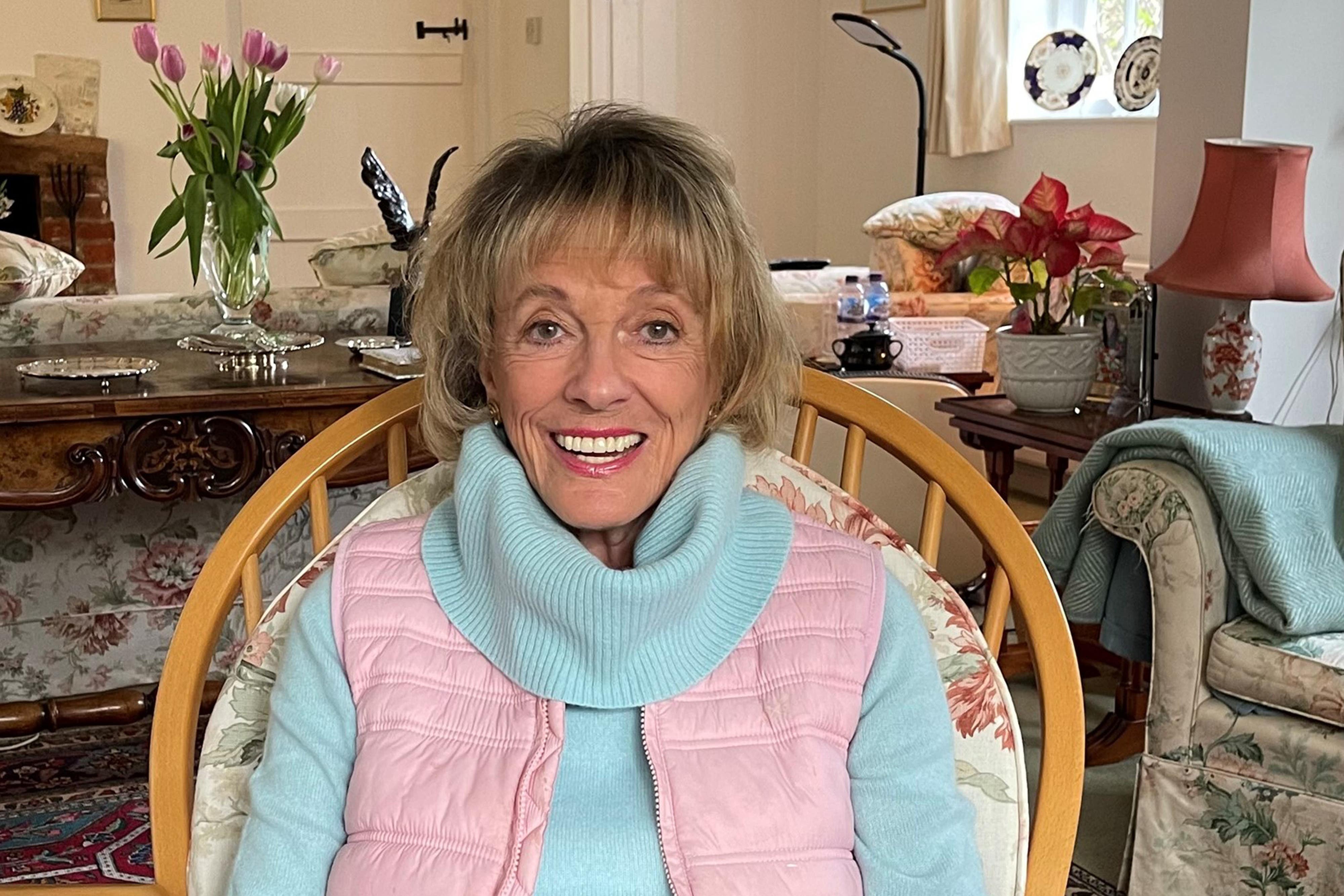Health Secretary’s opposition to assisted dying Bill disappointing, says Rantzen
Culture Secretary Lisa Nandy has confirmed she will vote for Kim Leadbeater’s Terminally Ill Adults (End of Life) Bill.

Your support helps us to tell the story
From reproductive rights to climate change to Big Tech, The Independent is on the ground when the story is developing. Whether it's investigating the financials of Elon Musk's pro-Trump PAC or producing our latest documentary, 'The A Word', which shines a light on the American women fighting for reproductive rights, we know how important it is to parse out the facts from the messaging.
At such a critical moment in US history, we need reporters on the ground. Your donation allows us to keep sending journalists to speak to both sides of the story.
The Independent is trusted by Americans across the entire political spectrum. And unlike many other quality news outlets, we choose not to lock Americans out of our reporting and analysis with paywalls. We believe quality journalism should be available to everyone, paid for by those who can afford it.
Your support makes all the difference.Dame Esther Rantzen said she is “deeply disappointed” after the Health Secretary said he will vote against a bid to legalise assisted dying, as another Cabinet minister revealed she will support the Bill.
Wes Streeting is understood to have made his decision amid fears around coercion and people feeling a “duty to die”.
But his Government colleague, Culture Secretary Lisa Nandy has confirmed she will vote for Kim Leadbeater’s Terminally Ill Adults (End of Life) Bill on November 29.
She said she is conscious of the concerns Mr Streeting and others have and that there must be safeguards within any new law.
She told BBC Breakfast: “I’ve just seen too many examples of people who have no choices and no dignity at the end of their lives.
“And I think the current system is unstainable.”
Mr Streeting had spoken recently about his concern that palliative care is not good enough “to give people a real choice”.
Ms Nandy added: “I very much agree with Wes that we need to improve palliative care in this country.
“But I want people to have the choice about how they’re treated at the end of their life.”
Justice Secretary Shabana Mahmood has previously stated she will oppose the Bill, telling the Times: “As a Muslim, I have an unshakeable belief in the sanctity and value of human life.”
The Government is officially neutral on the Bill and MPs will have a free vote according to their conscience rather than along party lines.
Earlier this month, Cabinet Secretary Simon Case wrote to ministers to say that, while they “need not resile from previously stated views when directly asked about them, they should exercise discretion and should not take part in the public debate”.
Dame Esther, who is terminally ill and has been outspoken in support of change, said she felt “distressed” and “deeply disappointed” by news of Mr Streeting’s decision.
He is reported to have given his view when asked about assisted dying at a meeting of the Parliamentary Labour Party this week.
Dame Esther accused him of “ignoring the Government’s request to stay neutral”.
Writing in the Express newspaper, she said: “As Health Secretary you must know, or at least you should, that even the best palliative care cannot always protect patients from dying in agony, and their families and doctors watching helplessly.”
She asked if he was “really comfortable with the current law that imposes this terrible memory?” and said the current situation could “force me to fly to Dignitas in Zurich to die alone”.
She added: “What kind of health minister are you if you have no respect or understanding for the views of terminally ill patients?”
While Dame Esther is one of the best-known faces in support of the Bill, high-profile figures such as the Archbishop of Canterbury have spoken out against a change in the law.
Justin Welby has warned of a “slippery slope”, and other opponents said they feared for the elderly and disabled people who could be especially vulnerable if the law is changed.
Ms Leadbeater has previously rejected the slippery slope argument, saying her legislation will have “very clear criteria, safeguards and protections”.
She has also said there is “absolutely no question of disabled people or those with mental illness who are not terminally ill being pressured to end their lives” and argued that any new law would not come into effect as an alternative to good palliative care.
In the Commons on Thursday, Liberal Democrat MP Munira Wilson (Twickenham) said many MPs welcomed the chance to debate assisted dying but suggested more time was required.
She said: “For many of us who are deeply torn on this issue who want to look in-depth at the practical, moral, ethical and legal considerations, we do not feel that a Private Member’s Bill with only five hours of debate where we will have to take a vote on second reading is the right vehicle to do so.
“The Prime Minister committed to Government time on this issue, so could I urge the Leader of the House in due course to bring forward legislation in Government time, with proper pre-legislative scrutiny and impact analyses, so if we are to take such a grave decision that we’ve got all of the resources at our disposal to do so.”
Commons Leader Lucy Powell, in her reply, said: “These matters, such as assisted dying, are matters of conscience, they’ve always traditionally been through Private Members’ Bills because the Government doesn’t have a view and there will be a free vote for the Government so there is no Government time.
“There will be a second reading, which would be the same length of time as there would be for other Bills, but there will be lots of other opportunities for these matters to be debated and she could apply for other debates as well and take forward other issues.”